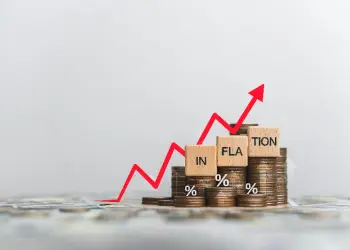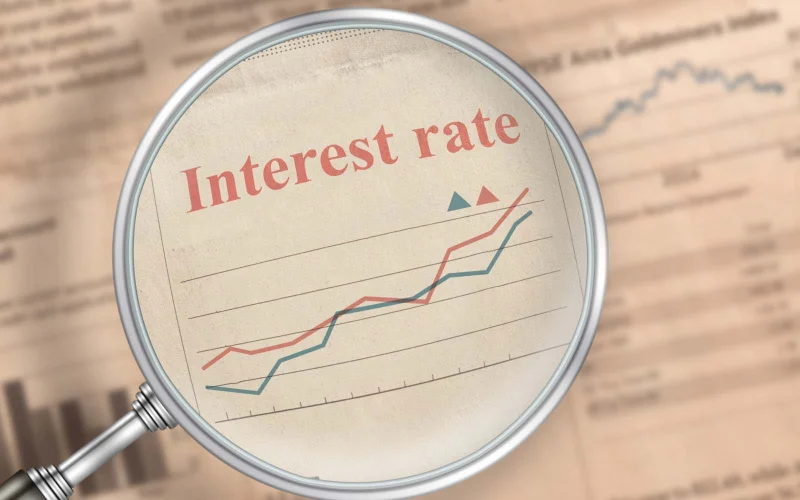trending
neon
Cirque du Soleil offers summer ticket deals
dining out
Celebs ditch the Strip for iconic Henderson restaurant
july 
trending
neon
Cirque du Soleil offers summer ticket deals
dining out
Celebs ditch the Strip for iconic Henderson restaurant
july 

Recent changes to cryptocurrency regulations in the United States are having significant effects on retail investors. This article explores the new rules and what they mean for individuals looking to invest in digital currencies.




The U.S. government has been actively addressing the growing concerns over the cryptocurrency market, which has seen explosive growth in recent years. New regulations are now coming into play, and retail investors are at the center of these changes. These new rules aim to ensure that the cryptocurrency market operates within a legal framework that safeguards investors, prevents fraud, and addresses concerns over money laundering and other illicit activities. However, these regulations also pose challenges for retail investors who are navigating the evolving landscape of digital currencies.
The new regulations that have been implemented or are in the process of being finalized are designed to create a more secure and transparent environment for cryptocurrency investors. Here’s a breakdown of the key regulations affecting retail investors:
Registration and Compliance Requirements for Cryptocurrency Exchanges: One of the most significant changes is the registration and compliance requirements for cryptocurrency exchanges. Exchanges like Coinbase, Binance, and others will now be required to adhere to stricter reporting and compliance standards.
Tax Reporting and Documentation: The Internal Revenue Service (IRS) has ramped up efforts to ensure that cryptocurrency transactions are properly documented for tax purposes. New regulations mandate that cryptocurrency exchanges provide detailed transaction data, including gains and losses, to both the IRS and their customers.
Anti-Money Laundering (AML) and Know-Your-Customer (KYC) Requirements: To combat illicit activities such as money laundering and fraud, cryptocurrency exchanges are now subject to more stringent AML and KYC regulations. These regulations require exchanges to verify the identities of their users and monitor transactions for signs of suspicious activities.
Stablecoins and Cryptocurrency Custody Rules: Stablecoins, which are cryptocurrencies pegged to traditional assets such as the U.S. dollar, have drawn attention from regulators due to their potential to destabilize financial markets if not properly regulated. The new rules mandate that issuers of stablecoins must meet certain reserve requirements and provide regular audits.
Regulation of Initial Coin Offerings (ICOs) and Token Offerings: Initial Coin Offerings (ICOs) and other token offerings have become a popular way for companies to raise capital in the cryptocurrency space. However, these offerings have been controversial, with many investors facing significant losses due to fraudulent or poorly managed ICOs. The new regulations require that companies conducting ICOs meet the same standards as traditional securities offerings, including providing disclosures and investor protections.
The new regulations aim to provide more transparency and security for retail investors. For example, exchanges will have to provide more detailed reports, which means that investors can better track their holdings and monitor their investments. The KYC and AML regulations should also reduce the likelihood of fraud, ensuring that investors are dealing with legitimate platforms.
With more oversight from regulators such as the SEC, investors can feel more confident that exchanges and projects will adhere to higher standards. This is crucial as the cryptocurrency space has seen its fair share of fraudulent schemes and scams.
While the regulations are beneficial for ensuring the security and transparency of the market, they also add complexity. Retail investors will now need to be more proactive in tracking their transactions, managing their tax liabilities, and ensuring they comply with regulatory requirements. The process of signing up for exchanges and completing KYC verification may become more cumbersome, and investors might face higher fees as exchanges adjust to the new rules.
For some retail investors, the tightening of regulations may limit their access to certain investment opportunities. ICOs and token offerings, which were once a popular method for early-stage investments, are now subject to more stringent rules. While this could reduce the risk of fraudulent schemes, it may also limit the potential for high returns that come with investing in new projects before they are fully regulated.
As cryptocurrency regulations evolve, retail investors must adapt their strategies to navigate the changing landscape. Here are some tips for staying compliant and making informed investment decisions:
Stay Informed About Regulatory Changes: The cryptocurrency regulatory environment is still evolving. Retail investors should stay informed about the latest updates to ensure that they understand the impact of new regulations on their investments.
Use Reputable Exchanges: It’s crucial to use exchanges that comply with the new regulations. Look for exchanges that provide transparency in their operations and have robust security measures in place.
Keep Accurate Records: With tax reporting becoming more stringent, retail investors must maintain accurate records of their transactions. Utilizing portfolio tracking tools and working with a tax professional who understands cryptocurrency can help investors stay compliant.
Be Mindful of Risks: Despite increased regulatory oversight, the cryptocurrency market remains volatile. Retail investors should approach the market with caution, diversify their portfolios, and be prepared for the inherent risks that come with cryptocurrency investments.
Recent changes to cryptocurrency regulations in the United States are having significant effects on retail investors. This article explores the new rules and what they mean for individuals looking to invest in digital currencies.
the latest

Banking System Reforms: How They Affect Your Savings and Investment Accounts
Banking system reforms are reshaping the financial landscape, and these changes could impact your savings and investment accounts. From interest rates to new regulations, understand how these reforms will affect your financial future. This article provides insights into the potential implications and how you can adapt your strategy to thrive in the evolving financial environment

Inflation vs. Investment: What to Do with Your Money in 2025
As inflation continues to challenge global economies, understanding how to protect and grow your wealth becomes more crucial than ever. In this article, we’ll explore how inflation is affecting investments in 2025 and provide expert advice on what to do with your money to safeguard your financial future. Whether you're new to investing or an experienced investor, learn the best strategies for navigating this economic climate.

U.S. Dollar's Rise: Impact on Foreign Exchange and Investments
The strengthening of the U.S. dollar is shaking up global markets, affecting everything from foreign exchange rates to international investments. In this article, we analyze how the dollar's rise impacts global trade, investment strategies, and economic stability. Understanding these effects is crucial for businesses and investors navigating the increasingly globalized financial landscape

Treasury Bond Yields Hit Record Lows: What It Means for You
Treasury bond yields have reached record lows, marking a significant shift in the financial landscape. As yields decline, the return on investments such as bonds and savings accounts also decreases. This article discusses the potential impact of these record-low yields on various forms of investment and offers guidance on how to navigate these changes in the financial market

Interest Rate Hikes: How It’s Affecting Personal and Corporate Finances
Rising interest rates are reshaping both personal and corporate finances. From mortgages and credit card payments to business borrowing costs and profits, the effects are profound. As central banks increase rates to curb inflation, both consumers and companies are adjusting their financial strategies. This article explores the current and long-term impacts of interest rate hikes on the economy.

Biden’s Economic Plan: Effect on Dollar & Money Supply
The economic policies introduced by President Biden have far-reaching implications for the U.S. dollar and the broader money supply. With the country facing various challenges, including inflation and recovery from the pandemic, Biden's approach involves major fiscal changes that could significantly affect the financial landscape

New Cryptocurrency Regulations Impacting Retail Investors in the U.S.
Recent changes to cryptocurrency regulations in the United States are having significant effects on retail investors. This article explores the new rules and what they mean for individuals looking to invest in digital currencies.

How U.S. Investment Policies Shape Financial Stability
U.S. investment policies play a crucial role in shaping financial stability by influencing capital markets, interest rates, and economic growth. Regulatory frameworks and government interventions determine risk levels, investor confidence, and long-term economic sustainability

How U.S. Economic Policies Are Reshaping Investment Trends
With shifting U.S. economic policies, investors are adjusting their strategies to respond to new market dynamics. This article explores the key policy changes and their influence on investment decisions